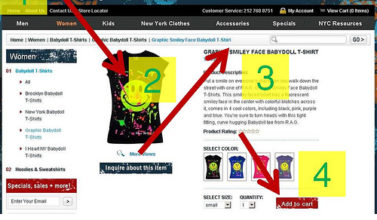
Have you ever searched online to try and find a service in your local area, such as a hairdresser, dentist, car dealership or estate agent? More and more people are opting to seek out products and services online and are paying close attention to what online reviewers have to say.
Companies with a high volume of online reviews can gain a powerful advantage in winning new business, whether for a small local firm or a big International brand. Search engines amplify the prominence of companies with large numbers of relevant customer reviews. A great example of this in action is the Google Review platform that can be seen within the first few positions for many brand name searches.
It can be tempting to try and ‘rig’ the system, artificially boosting the number and quality of user reviews, but that can easily backfire, doing more harm than good.
Here’s what not to do when dealing with online reviews:
1. Writing fake reviews
Don’t do it! Even if you manage to create convincing write-ups, review sites have protocols and algorithms designed specifically to sniff out fakes. If you get caught, both customers and review sites could blacklist your business. Companies like Yelp actively investigate and publicly shame companies that use fake reviews and fake reviewers.
2. Having your head in the sand
Whether or not you’re active online, your customers probably are. Even if you aren’t being actively reviewed right now, that can change in an instant. It’s not unheard of for competitors to slander other businesses using review sites. The more active you are with online reviews, the more likely you are to proactively ensure you look good online.
Sites like Yelp, Google+ and Yahoo! Local rate businesses by the number of and quality of their customer reviews. Setting up accounts isn’t much effort and lets customers start building your online reputation for you – but don’t just settle for one, the more places you’re reviewed, the better. Also, social media platforms like Facebook and Twitter aren’t just for swapping cat pictures, many people share opinions about businesses too, so make sure customers can find you there, too.
3. Not asking your customers for reviews
You’re missing out-big time and the likelihood is that your competitors are already doing it. Ask for reviews because you value genuine feedback from your customers and appeal to their altruistic side.
Ask for the good and the bad, for an honest write-up. Most people will be flattered that you trust them and value their opinion, which builds trust and loyalty, leading to high-quality, positive reviews. And if you get a bad review it’s better to find out why and address the problem instead of ignoring it. 88% of consumers say they trust online reviews as much as personal recommendations, so not asking for the review in the first place is damaging your business.
4. Threatening customers
A sure-fire way to exacerbate an online review problem is to get defensive. Accept criticism gracefully, no matter how unfounded the accusations, and respond tactfully to bad reviews. Avoiding legal tactics such as “do not review” agreements, which are unlikely to hold up in court and are poison for customer relations.
Going as far as ‘fining’ customers for bad reviews can do much more harm for your reputation than a single disgruntled comment, as one Blackpool hotel found out very publicly.
5. Offering an incentive for a review
Offering a small incentive seems like a harmless way to generate positive reviews, but this strategy is risky and usually doesn’t work. Avoid any kind of tactic that could look like a bribe or generate a conflict of interest.
Some customers are likely to take offence and may post negative reviews in retaliation. When it comes to pay-for-play strategies for online reviews, the costs generally outweigh the benefits. Some sites like Yelp and Google frown upon providing incentives to customers, as the review will rarely be negative. If you do want to offer something, try a competition or prize draw, or offer a voucher for a future custom.
Considering that at the end of 2014, 71 million reviews had been submitted to Yelp, a 35% year on year increase since 2009, your business really needs to be generating reviews to attract new business and improve the experience for existing customers, because your competitors certainly are!
Watch Rob Thomas tips on how to get more online reviews here
For more insights on how to maximise the impact of positive reviews and how to handle and prevent negative ones, download our practical handbook and take control of your online reputation.
Related Post
Monitor, Influence and Lead...
Get Actively Involved in the Outcome of Search Results Don’t take negative publicity...
- April 28, 2011
- By Rob Thomas
- ORM
Free Online Reputation...
Listen to What’s Being Said About You Online (Free online reputation monitoring...
- May 5, 2011
- By Rob Thomas
- ORM
Top Tips for Product Page...
As the internet evolves and user expectation becomes increasingly sophisticated, creating...
- May 31, 2011
- By Rob Thomas
- e-Commerce
Online Reputation Management...
Creating a positive brand impression on the Internet You may have a fantastic product or...
- July 13, 2011
- By Rob Thomas
- ORM
Getting the Most from your...
LinkedIn is not only the most popular social network for professionals but with more than...
- November 22, 2012
- By Nadine Thomas
- Linked In
How One Business Saw Its...
Anyone who has ever been in business will know that things don’t always go according to...
- July 16, 2013
- By Rob Thomas
- Customer Reviews












Leave a Comments